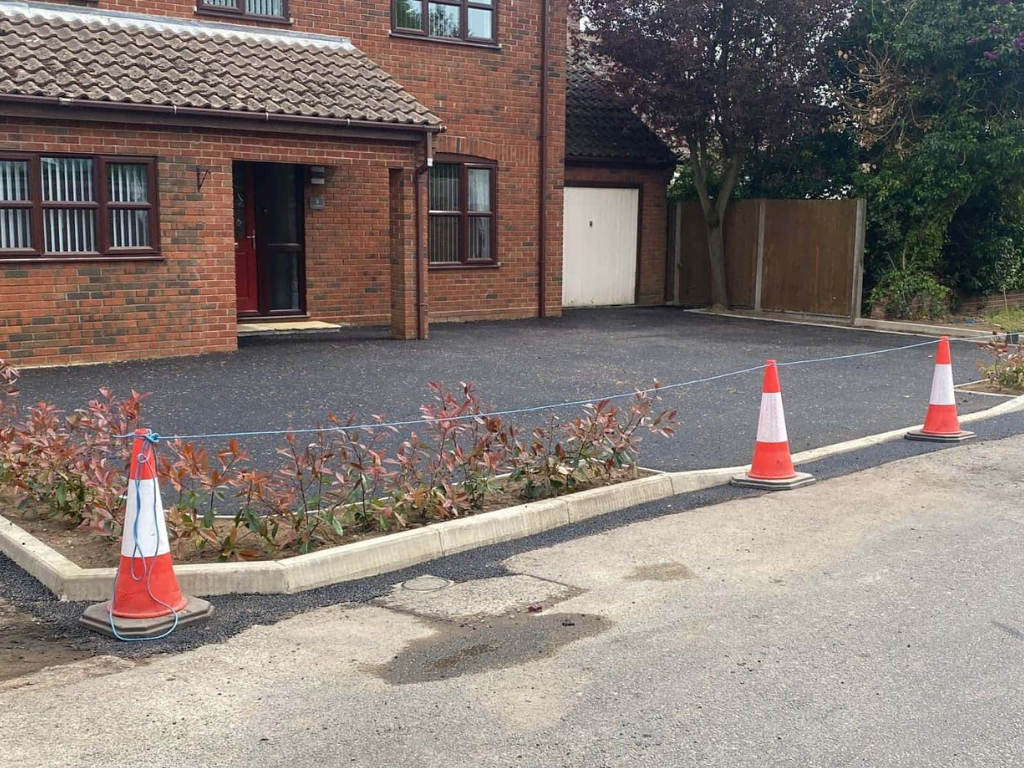5 Signs It’s Time to Resurface Your Farm Road
Introduction
Farm roads serve as essential access routes for agricultural operations, livestock transport, equipment movement, and everyday farm life. But like any surface exposed to the elements and heavy usage, they deteriorate over time. Knowing when to resurface your farm road can save you from higher repair costs, equipment damage, and safety risks.
At Linton Driveway Installations, we help rural property owners in Linton, Cambridgeshire maintain and upgrade their farm roads with durable, professionally laid surfaces. In this post, we’ll highlight five clear signs that it might be time to consider resurfacing your farm road.
1. Deep Potholes and Erosion Channels
More than just a nuisance
Minor surface cracks are normal, but if your farm road has developed deep potholes or water-worn ruts, it’s a strong indication that the underlying base has become compromised. These hazards can:
- Damage tyres, suspension, and undercarriages on vehicles
- Pose safety risks for livestock or pedestrians
- Worsen rapidly in wet weather
A fresh surface with proper grading and drainage can restore usability and prevent further wear.
2. Poor Drainage and Standing Water
A hidden structural issue
Effective drainage is crucial for the longevity of any rural road. When water begins pooling after rain, it often signals that the surface has lost its shape or camber. Over time, poor drainage leads to:
- Sub-base softening and failure
- Accelerated material breakdown
- Algae or moss growth, creating slippery patches
If you’re constantly battling puddles or finding erosion after every storm, resurfacing may be the best solution.
3. Excessive Dust in Dry Conditions
Not just about cleanliness
During the summer months, farm roads made from degraded surfaces can kick up significant amounts of dust. This is a sign that the binder holding your road together is breaking down, particularly in older tarmac or gravel roads.
Problems caused by excess dust include:
- Reduced air quality near buildings or livestock
- Increased cleaning and maintenance of vehicles and machinery
- Dust ingress into barns or greenhouses
Modern resurfacing solutions can significantly reduce dust while improving durability and visual appeal.
4. Uneven or Sunken Sections
A result of compaction or poor base work
If your farm road has begun to dip, buckle, or develop uneven surfaces, it’s more than just a visual concern. Sunken sections can cause:
- Water pooling and further erosion
- Trip hazards and unstable footing
- Misalignment of gates or access points
In Linton, Cambridgeshire, where soil conditions vary, such issues are common and best handled with a properly graded resurface and a reinforced base layer.
5. General Wear and Ageing
Sometimes, it’s just time
Even with regular upkeep, all surfaces eventually reach the end of their practical life. If your farm road:
- Requires patching multiple times a year
- Has lost its original texture or colour
- Looks tired and weather-beaten across its full length
…it may be more cost-effective to resurface rather than continue with short-term fixes. A new surface can add years of use, improve appearance, and even enhance property value.
Conclusion
A farm road is more than just a track—it’s a vital part of your working land. Recognising the signs of wear early helps prevent more serious issues and ensures smooth, safe access for vehicles, equipment, and workers.
At Linton Driveway Installations, we provide expert advice and resurfacing services for farm roads across Linton, Cambridgeshire. Whether you’re dealing with deep potholes, poor drainage, or general surface degradation, we’re here to help you protect your investment and keep your rural property running efficiently.
Call us on: 01223 657 698
Click here to find out more about Linton Driveway Installations
Click here to complete our contact form and see how we can help with your driveway needs.

